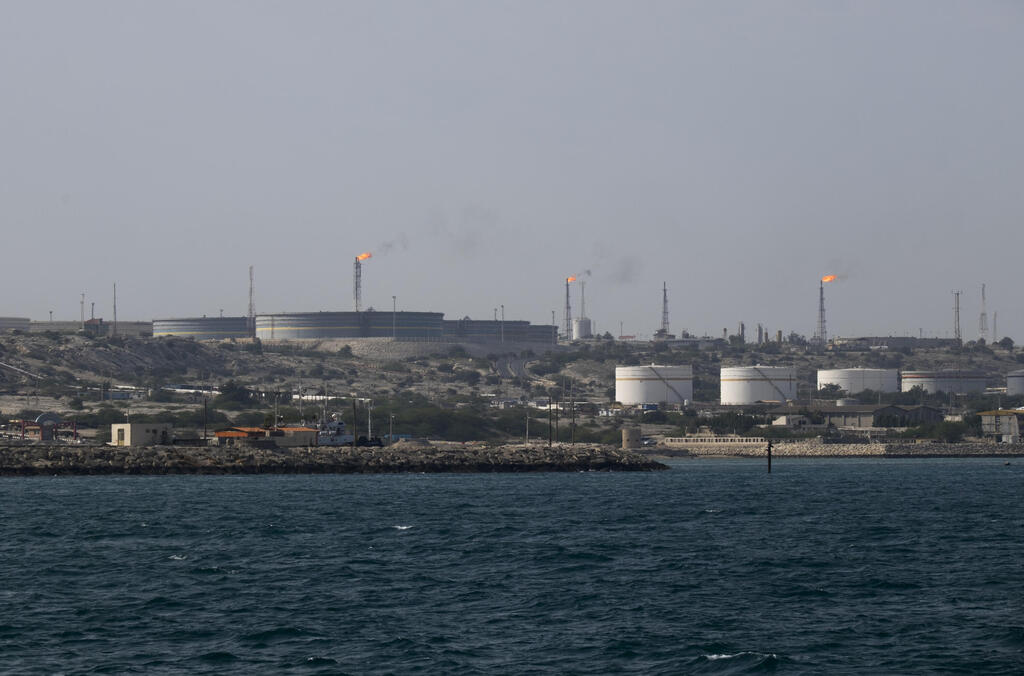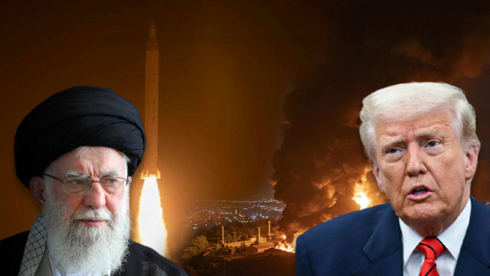The United States on Wednesday announced a sweeping set of new sanctions against Iran and entities linked to its oil trade, including companies, organizations, and vessels involved in the transport and sale of petroleum and petrochemical products.
According to the U.S. Treasury Department, the move marks the most extensive sanctions action since President Donald Trump unilaterally withdrew from the nuclear deal with Iran in 2018.
1 View gallery


The main crude oil export facility of Iran on Kharg Island
(Photo: Morteza Nikoubazl/NurPhoto, Reuters)
In a statement from the State Department, the sanctions were said to target 20 entities and 10 ships engaged in the trade of oil and its byproducts originating in Iran. The administration said the move is part of ongoing pressure on the Islamic Republic “until Tehran agrees to a deal that promotes regional peace and stability, and abandons all aspirations for nuclear weapons.”
Separately, the Treasury Department announced sanctions on more than 115 individuals and entities allegedly tied to a global oil smuggling network said to be run by Hossein Shamkhani, the son of a senior political adviser to Supreme Leader Ayatollah Ali Khamenei.
The main crude oil export facility of Iran on Kharg Island
The sanctions target shipping companies, terminal operators, and bulk oil purchasers that the U.S. says have helped smuggle millions of barrels of Iranian oil. Sanctioned companies are located in multiple countries, including India, the United Arab Emirates, Turkey, Indonesia, and China — which, according to the State Department, has done business with actors already under U.S. restrictions.
“Today we are taking firm action to disrupt Iran’s ability to finance its nuclear activity, support for terrorist groups, and repression of its citizens,” the State Department said. “Any country or entity that chooses to trade in Iranian oil or petrochemicals exposes itself to sanctions and will be barred from doing business with the United States.”
Iranian Foreign Ministry spokesperson Esmaeil Baqaei sharply criticized the decision, calling it “clear evidence of the United States’ hostility toward the Islamic Republic.” He added, “The Iranian people, aware of the intention to weaken their country, will stand with all their might to defend their dignity and interests.”
Baqaei had announced earlier this week that Iran would allow International Atomic Energy Agency (IAEA) representatives to visit Tehran to renew technical talks between the sides.
Foreign Minister Gideon Sa’ar welcomed the U.S. sanctions, calling them a “just and essential decision.” He said, “The Iranian regime is the world’s leading exporter of terror and instability. I commend Treasury Secretary Scott Bessent and his department for this important and necessary step against the shipping empire of Mohammad Hossein Shamkhani.” Sa’ar also thanked former President Trump and his administration “for this move and other bold steps taken against the Iranian regime.”
Washington and Tehran held six rounds of indirect negotiations over Iran’s nuclear program, mediated by Oman, but talks were suspended following last month’s 12-day Operation Rising Lion, in which the U.S. joined Israel in military action. The two countries have not returned to the negotiating table since.
Last week, direct nuclear talks resumed in Turkey between representatives of the Islamic Republic and the three remaining European parties to the 2015 nuclear deal — Britain, France, and Germany.
